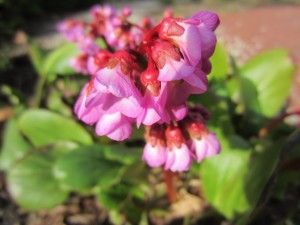How are you feeling as the summer nears its end?
Summer is not over yet – but the end is coming. Some of us are moving from a time of rest or recreation into a busier time. Some of us may not have been able to truly rest or enjoy these months; so this time of transition into fall may be even more bittersweet. What is on your heart in this season?
We end our Sabbath summer series with Psalm 92. It is the only psalm that is explicitly said to be for the Sabbath day.
In the opening section, we’re reminded of how important it is to praise the God who offers us steadfast love and faithfulness. These are the two most celebrated characteristics of God in the Hebrew scriptures, or Old Testament: steadfast love and faithfulness. It’s good to remember them, on the Sabbath.
We remember them, and we give thanks. Not just a little thanks. Not a half-hearted thanks. In the morning, and at night; with singing, with lute and harp and lyre. It’s on our Sabbath Day, after all, that we gather with others in worship, singing hymns, enjoying beautiful instruments playing to the glory of God.
It is good to give thanks to the Lord,
to sing praises to your name, O Most High;
to declare your steadfast love in the morning,
and your faithfulness by night,
to the music of the lute and the harp,
to the melody of the lyre.
For you, O Lord, have made me glad by your work;
at the works of your hands I sing for joy.
In the second section of the psalm, the message changes. The psalmist reminds us of the benefits of grounding ourselves in God, using an image found frequently in scripture, one of my favorites, the image of the believer as a tree who is planted in God. Those who are planted in God, the psalmist claims, still produce fruit in old age; they are always green and full of sap.
This passage is lovely, but also infuriating, because of course we know that the righteous do not always flourish; and the most holy people we know may suffer a great deal. They are not always fruitful; they are sometimes less than green. Perhaps, as one commentator suggests, this is a vision of heaven.
But what should we do in the meantime, we who want to be planted in God? We who are planted in God, and yet still struggle in times of busyness, scarcity, dryness? How can we move forward from summer, or from Sabbath, however we have experienced it?
In Jewish tradition, the transitions between Sabbath and non-Sabbath are carefully marked. Sabbath begins with the lighting of candles, the recitation of particular prayers. And Sabbath ends intentionally, too, with the ceremony of Havdalah, which itself means “separation.”
In the ceremony of Havdalah, a special candle is lit; wine is tasted; and spices are passed around, to share the sweet scent. The idea is to engage all of the senses in savoring the goodness of life and creation as you pass from Sabbath into ordinary time.
In worship, we followed this tradition in our own way. We looked at the beautiful garden and felt the sun and wind on our skin. We passed around sweet cloves to smell
(cloves are a traditional spice for Havdalah in some Jewish traditions) and sweet candy to taste (not traditional!). We listened to Jim play. As we savored the goodness of life and creation with all of our senses, we each silently gave thanks for the gifts of summer.
Blessed are you, God, our Lord, Ruler of the Universe; who separates the light from the darkness, the waters from dry land, summer from fall, and Sabbath rest from working week. Help us to return to the nourishment of your soil with whatever rhythm, in whatever ways are most satisfying to our souls. In every season of our lives, in every season of the year, remind us of your steadfast love and faithfulness. Flood our hearts with gratitude; green our leaves and fill us with sap. Amen.
